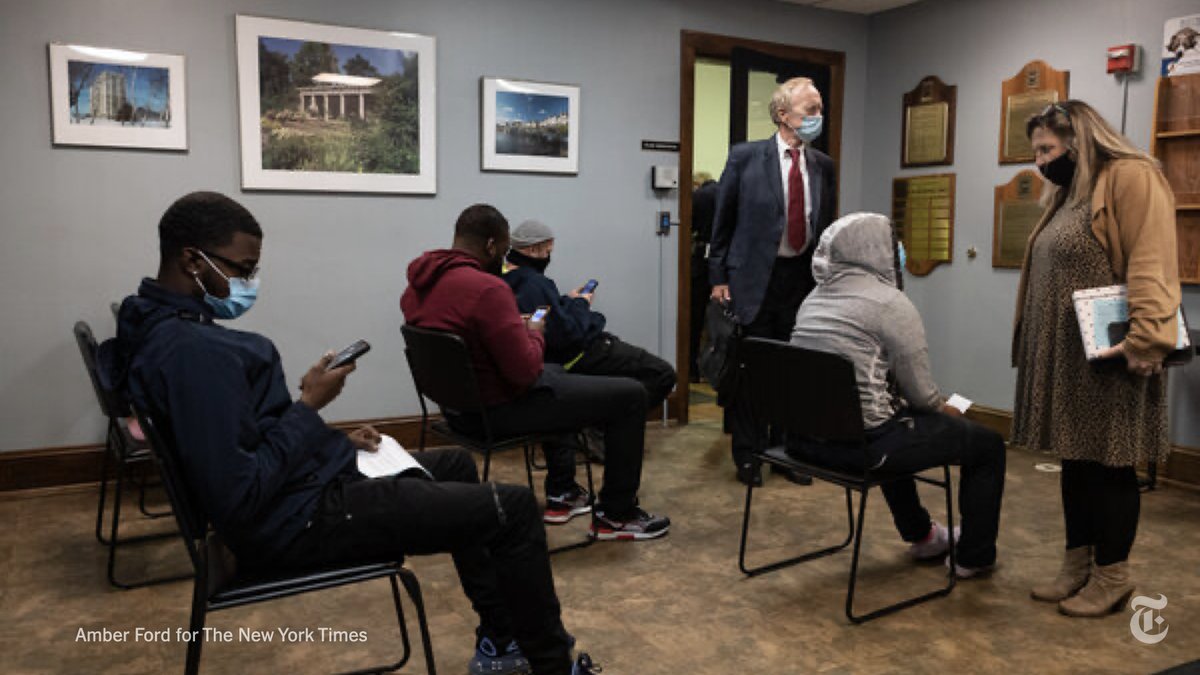
Arrested for busted taillights.
Tased during a stop for missing plates.
Jailed over tinted windows.
Across the U.S., towns rely on traffic ticket revenue for their budgets — and to pay the salaries of the officers responsible for finding violations. nyti.ms/3GwjCoS
Tased during a stop for missing plates.
Jailed over tinted windows.
Across the U.S., towns rely on traffic ticket revenue for their budgets — and to pay the salaries of the officers responsible for finding violations. nyti.ms/3GwjCoS
Hundreds of communities have essentially made officers into revenue agents. And the drive for funding can shape policing.
As a result, driving's become one of the most common daily activities during which people have been shot, Tased, beaten or arrested after minor offenses.
As a result, driving's become one of the most common daily activities during which people have been shot, Tased, beaten or arrested after minor offenses.

More than 730 municipalities get at least 10% of their revenue from fines and fees, a New York Times investigation found. Most are in the South and Midwest.
In many cases, officers' salaries — and sometimes, the size of the police force — depend on ticket revenue.
In many cases, officers' salaries — and sometimes, the size of the police force — depend on ticket revenue.

Financial incentives can influence the policing of motorists. The federal government issues over $600 million a year in grants that subsidize ticket writing. At least 20 states have evaluated police performance on the number of traffic stops per hour. nyti.ms/3mxJfxu 

In Newburgh Heights, Ohio, a city of 2,000, revenue from traffic citations — $3 million in 2019 — typically makes up half the town’s budget.
Its 21 officers monitor a stretch of Interstate 77 that passes through — and citations help fund the police force. nyti.ms/3mxJfxu
Its 21 officers monitor a stretch of Interstate 77 that passes through — and citations help fund the police force. nyti.ms/3mxJfxu

In Newburgh Heights, some of that traffic citation money is processed through the Newburgh Heights Mayor’s Court, one of 286 anachronistic judicial offices that survive, mostly in small towns, across Ohio. nyti.ms/3mxJfxu 

Critics say the drive for ticket funding contributes to overpolicing and erosion of public trust, particularly for people of color.
Bratenahl, Ohio, shows how people of color can be disproportionately affected. nyti.ms/3mxJfxu
Bratenahl, Ohio, shows how people of color can be disproportionately affected. nyti.ms/3mxJfxu

Bratenahl is 83% white, but on many days, the crowd in Bratenahl mayor’s court has been mostly Black.
Overall, the court typically has more than twice as many traffic cases each year as there are residents in town, state records show. nyti.ms/3mxJfxu
Overall, the court typically has more than twice as many traffic cases each year as there are residents in town, state records show. nyti.ms/3mxJfxu

Yet all of the cases in Bratenahl were not enough for the mayor, who emailed his police chief in November 2018 that a "downturn in mayor’s court revenue" was exacerbating a budget crunch and employee raises could be affected.
The chief then sent this blunt email to officers.
The chief then sent this blunt email to officers.

The need for municipalities to sustain revenue appears to be an incentive for many traffic stops — and in some cases, there are quotas.
The police chief of Windsor, Virginia, pushed for enough tickets to comply with the town’s federal highway safety grants.
The police chief of Windsor, Virginia, pushed for enough tickets to comply with the town’s federal highway safety grants.

The push for ticket revenue is not new: More than a century ago, departments found that taking on traffic enforcement meant they could hire officers and expand their investigative powers. nyti.ms/3mxJfxu 

But for all the emphasis on traffic stops, there's little evidence federal highway grants are achieving their stated purpose of making roads safer: In 2019 there were 33,244 fatal crashes nationwide, up from 30,296 in 2010.
Read our full investigation. nyti.ms/3mxJfxu
Read our full investigation. nyti.ms/3mxJfxu
• • •
Missing some Tweet in this thread? You can try to
force a refresh














